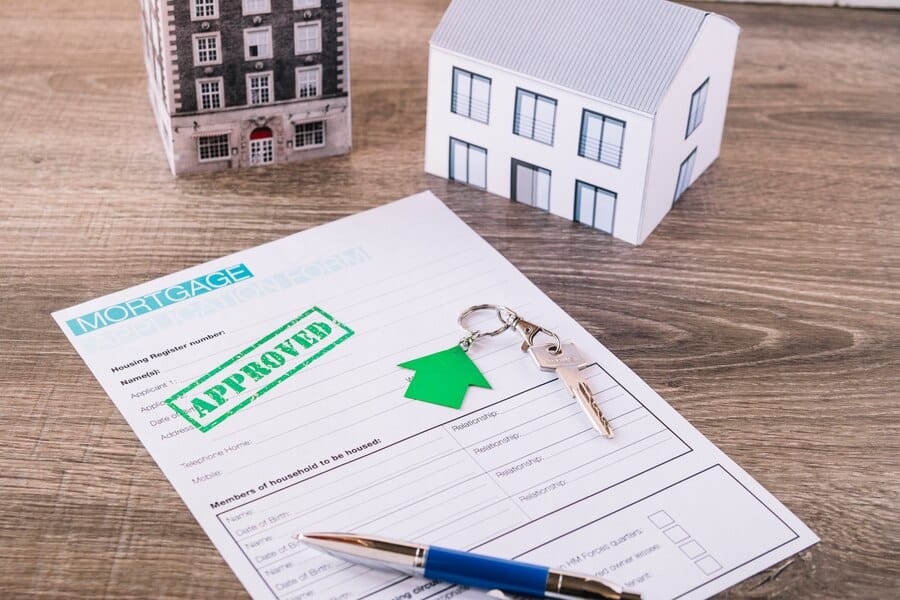Homeowners Insurance Best Purchasing your first home is an exciting milestone, but it also comes with a host of responsibilities—one of the most important being securing the right homeowners insurance. Homeowners insurance not only protects your investment but also provides peace of mind as you settle into your new space. For first-time buyers, navigating the world of insurance can be daunting. Here’s a guide to help you find the best homeowners insurance fit for your needs.
Homeowners Insurance Best Understanding Homeowners Insurance

Homeowners insurance is a policy that provides financial protection against damage to your home and its contents. It typically covers:
Property Damage: Protects against damage from events like fire, theft, or severe weather.
Liability Protection: Covers injuries to others that occur on your property.
Additional Living Expenses: If your home becomes uninhabitable due to a covered event, this helps pay for temporary housing.
Types of Homeowners Insurance Policies

Before diving into the selection process, it’s crucial to understand the various types of homeowners insurance policies available:
HO-1 (Basic Form): Offers limited coverage for specific disasters.
HO-2 (Broad Form): Covers a wider range of perils than HO-1.
HO-3 (Special Form): The most common type, covering your home against all perils except those specifically excluded.
HO-4 (Renters Insurance): For renters, covering personal property and liability.
HO-5 (Comprehensive Form): Similar to HO-3 but provides broader coverage for personal property.
HO-6 (Condominium Insurance): Specifically for condo owners, covering personal property and liability.
HO-7 (Mobile Home Insurance): Tailored for mobile or manufactured homes.
Understanding these options will help you choose a policy that best suits your needs.
Factors to Consider When Shopping for Homeowners Insurance

1. Coverage Amount
Determine how much coverage you need by considering the value of your home and belongings. This may require a home appraisal to ensure your coverage adequately protects your investment.
2. Deductibles
A deductible is the amount you pay out of pocket before your insurance kicks in. Policies with higher deductibles generally have lower premiums, but ensure you can afford the deductible in the event of a claim.
3. Discounts
Many insurers offer discounts for various reasons, including bundling home and auto insurance, being a first-time buyer, or having safety features in your home (like smoke detectors and security systems). Inquire about potential discounts to lower your premiums.
4. Reputation of the Insurance Company
Research the insurance provider’s reputation. Look for customer reviews and ratings on claims handling, customer service, and overall satisfaction. This will give you insight into how reliable the company is.
5. Policy Exclusions
Every policy has exclusions. Common exclusions include floods and earthquakes. If you live in an area prone to specific risks, consider additional coverage, such as flood insurance.
6. Additional Coverage Options
Evaluate if you need additional coverage based on your personal circumstances. For instance, you might want to add coverage for high-value items like jewelry or art.
Steps to Finding the Best Fit

1. Assess Your Needs
Before reaching out to insurers, take stock of your needs. Consider the value of your home, the contents inside, and any potential risks based on your location.
2. Shop Around
Get quotes from multiple insurance companies. This allows you to compare coverage options and premiums, ensuring you get the best deal.
3. Read the Fine Print
Carefully read policy documents and ask questions about anything you don’t understand. Pay special attention to coverage limits, deductibles, and exclusions.
4. Consult an Insurance Agent
If you’re feeling overwhelmed, consider consulting an insurance agent. They can provide personalized advice based on your situation and help you find a policy that meets your needs.
5. Review Annually
Once you secure homeowners insurance, review your policy annually or when significant life changes occur (like renovations or acquiring new valuables). This ensures you maintain adequate coverage.
Also Read : In FY21, Motor Insurance Premiums Brought In Rs 64,522 Billion And Claims Paid Out Rs 35,519 Billion
Conclusion
Finding the right homeowners insurance as a first-time buyer may seem overwhelming, but understanding your needs and the options available can streamline the process. By assessing coverage, comparing quotes, and considering additional protection, you can find a policy that fits your unique situation and offers peace of mind as you embark on this exciting journey of homeownership.
FAQs
1. What is homeowners insurance?
Homeowners insurance is a type of insurance that protects your home and personal property against damage or loss due to specific risks, such as fire, theft, and certain natural disasters. It also provides liability protection in case someone is injured on your property.
2. How much homeowners insurance do I need?
The amount of homeowners insurance you need depends on the value of your home and personal belongings. It’s advisable to conduct a home appraisal and take inventory of your possessions to determine the appropriate coverage.
3. What factors affect homeowners insurance premiums?
Several factors can influence your premiums, including the value of your home, location, claims history, the deductible you choose, and any discounts you qualify for. Additionally, the insurance provider’s assessment of risk in your area can also play a role.
4. Are there different types of homeowners insurance?
Yes, there are various types of homeowners insurance policies, including HO-1 (basic form), HO-2 (broad form), HO-3 (special form), and more, each offering different levels of coverage and protection.
5. What are common exclusions in homeowners insurance policies?
Common exclusions include damages caused by floods, earthquakes, and wear and tear. It’s essential to review your policy’s exclusions to understand what is not covered and consider additional coverage if necessary.
6. Can I bundle my homeowners insurance with other policies?
Many insurance companies offer discounts if you bundle your homeowners insurance with other policies, such as auto insurance. This can lead to significant savings on your premiums.
7. How often should I review my homeowners insurance policy?
You should review your homeowners insurance policy at least annually or whenever significant changes occur, such as renovations or acquiring valuable items, to ensure adequate coverage.
8. What should I do if I have a claim?
If you need to file a claim, contact your insurance provider as soon as possible. Document the damage with photos and gather any necessary information to support your claim. Your insurer will guide you through the claims process.
9. Is homeowners insurance required?
While homeowners insurance is not legally required, most mortgage lenders require it to protect their investment. Even without a mortgage, it’s advisable to have coverage to protect your property.
10. How can I find the best homeowners insurance for me?
To find the best homeowners insurance, assess your needs, shop around for quotes, read policy details carefully, consult an insurance agent if needed, and consider additional coverage options based on your situation.




